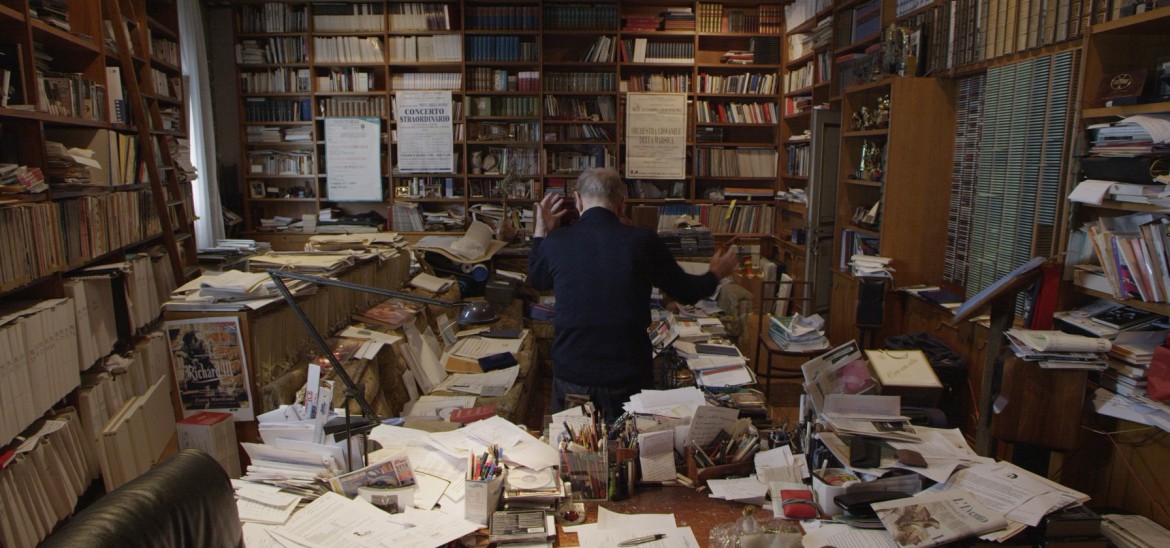Into Film Clubs
Find out everything you need to know about starting an Into Film Club.



Giuseppe Tornatore pays tribute to the musical talent of the late composer Ennio Morricone in a star-studded documentary that celebrates the power of music in film and the art of composition.
Music has always been an integral part of film. It sets the mood for a scene, reinforcing the intensity of the emotions or actions on screen. Film composers are responsible for writing the original music that accompanies a film, also known as a film score. But the music of some film composers ends up transcending the films themselves, such as the ominous orchestral piece written by John Williams for Star Wars. Ennio Morricone was an Italian film composer who wrote over 500 film scores, including some of the most powerful and memorable music in cinema. His music has become a cultural reference: a few trilling notes from his film score for The Good, the Bad and the Ugly sung or whistled by anyone would immediately put in mind a Wild West stand-off, even if you have never seen the film.
This new dynamic documentary explores Morricone's prolific career, featuring interviews with the Maestro himself. Filmed just before the composer died at the age of 91, he is at times visibly emotional discussing his career. With footage of concerts, archival images of recording sessions and striking film clips from Morricone's body of work, the lengthy documentary itself is uplifted by Morricone's music, which the composer even sings along to reminiscently. Italian musicians, academics and filmmakers including Bernardo Bertolucci and Dario Argento offer further insights into Morricone's work, as do fellow film composers Hans Zimmer (The Lion King) and internationally renowned singers, actors and directors such as Clint Eastwood. The many references to both well-known and obscure titles paint a rich picture of film history, with plenty of suggestions for further film viewing.
[Ennio Morricone] has the perception to connect sound, image, storytelling in infinite ways
Pat Metheny, guitarist and composer, ‘Ennio’
One of Morricone's first and most memorable collaborations was with the director Sergio Leone. Together, they created the distinctive look and sound of the spaghetti westerns A Fistful of Dollars, For a Few Dollars More and Once Upon A Time in the West. Morricone's use of dissonant sound in these films was revolutionary in the 1960s, juxtaposing electric guitar refrains with operatic crescendos, accented by the sound of whips lashing, with eerie persistent tunes played on a pan flute or whistled. Clint Eastwood's stoic performances were, by his own admission, elevated and dramatized by the music that accompanied him on screen. As Quentin Tarantino puts it, Morricone's music opens up the visuals of a film, emphasising what's happening on screen through sounds that are designed to evoke certain feelings. The music therefore leads to a deeper interpretation of the visuals. He is credited with creating a vocabulary for film music, an inventive language that involved repurposing sounds made by everyday objects that could be repeated in classrooms.
The documentary also confronts the issue of artistic snobbery. Morricone spent most of his life struggling with an internalised prejudice that music composed for films was somehow less worthy or artistic than what he refers to as ‘absolute' chamber music. Understanding the tension between supposedly highbrow and lowbrow artforms is one of the key lessons of the documentary, as it is ultimately rooted in the human desire to be ‘good enough'.
I came gradually to find convergences between absolute music and film music: one rubbed off the other
Ennio Morricone, 'Ennio'
Several films currently available to stream on Into Film+ also offer perspectives on this topic. The evolution of sound in cinema and the development of film itself as a respected artform are central to Singin' in the Rain. The film School of Rock similarly tackles the debate of classical vs. contemporary music, also drawing the conclusion that cross-genre influences can only make us grow. Whiplash is a cautionary tale of a talented musician desperate to live up to his professor's expectations. Broader examples of the dramatic effect of film scores can be found in Alfred Hitchcock's Psycho, whose composer Bernard Herrmann has often been compared to Ennio Morricone, or in Spike Lee's BlacKkKlansman, for which composer Terence Blanchard layers different genres of music.
Ennio offers inspiring material for young cinephiles and music enthusiasts and is accessible for Secondary and Sixth Form audiences, although the running time of two and a half-hour requires some commitment. The documentary's insight into the creative process of filmmaking attests to the collaborative nature of the industry and provides plenty of discussion points on how music is made.
Ennio is released into cinemas and available on demand from Friday 22 April.
Viewing 4 of 4 related items.

Find out more about our streaming service, designed specifically for UK schools.